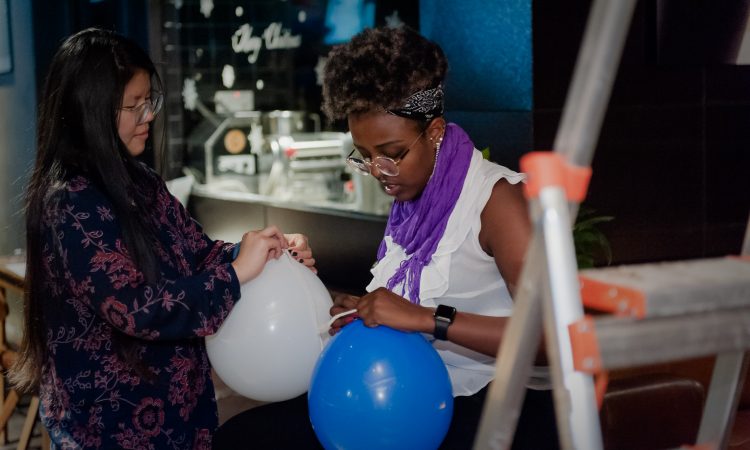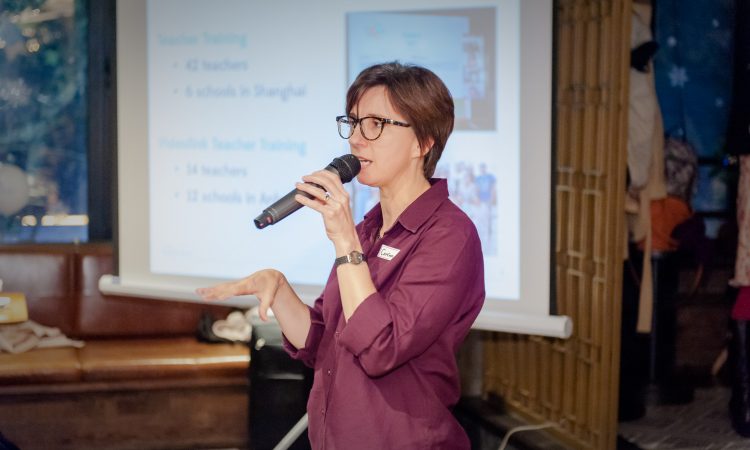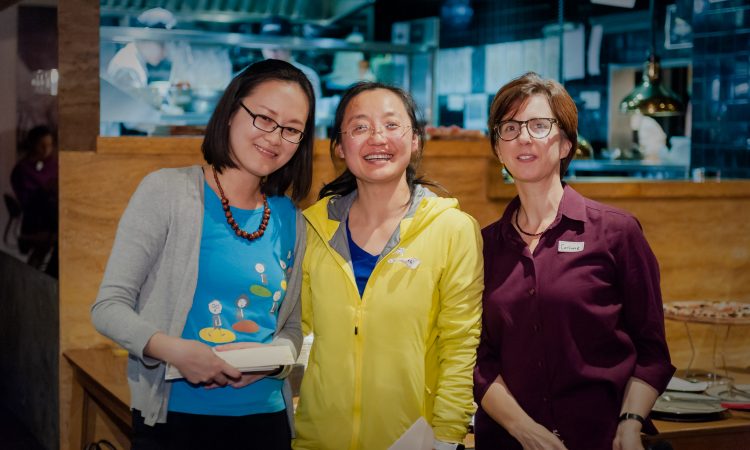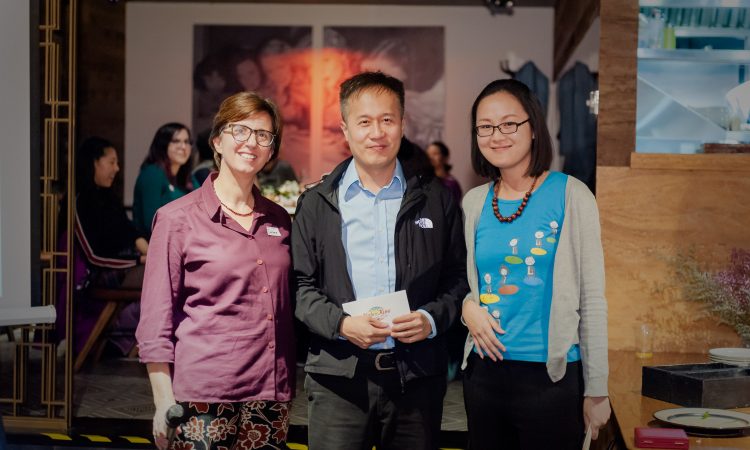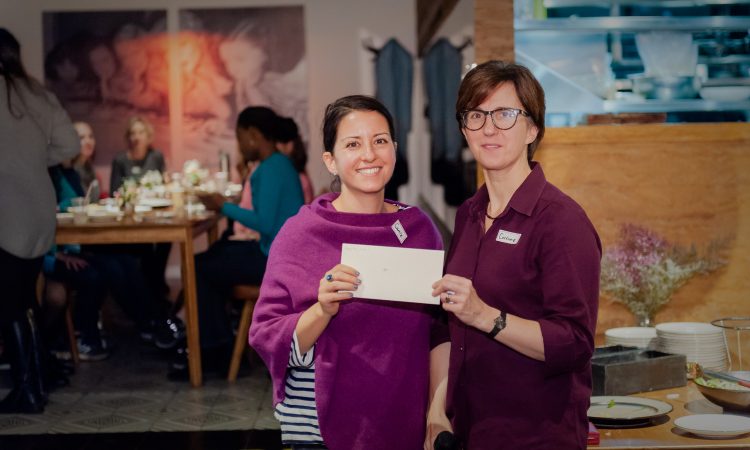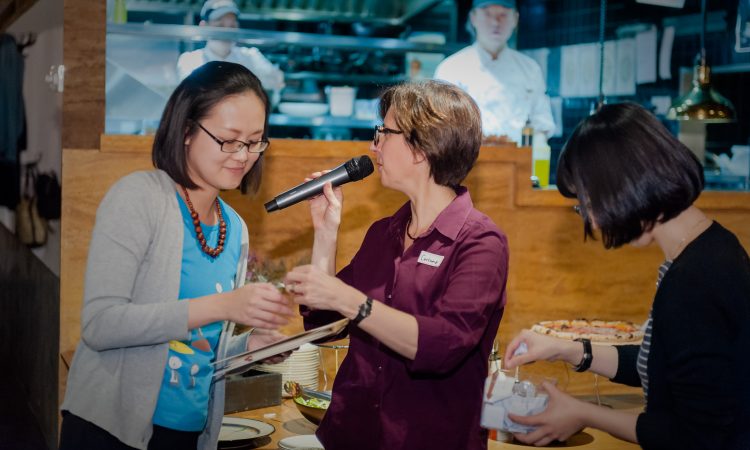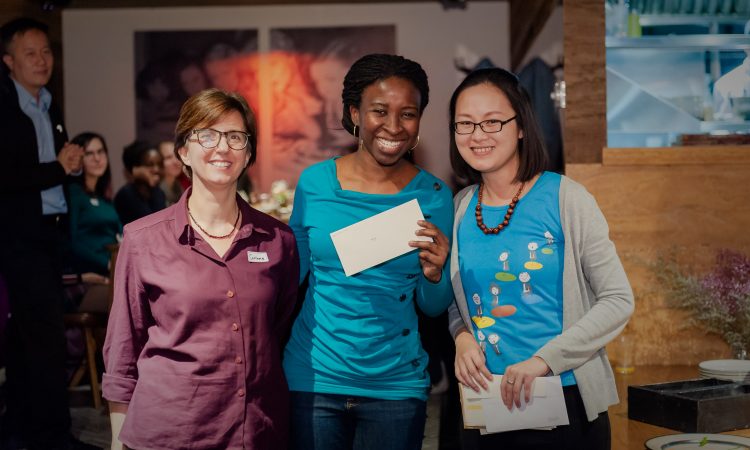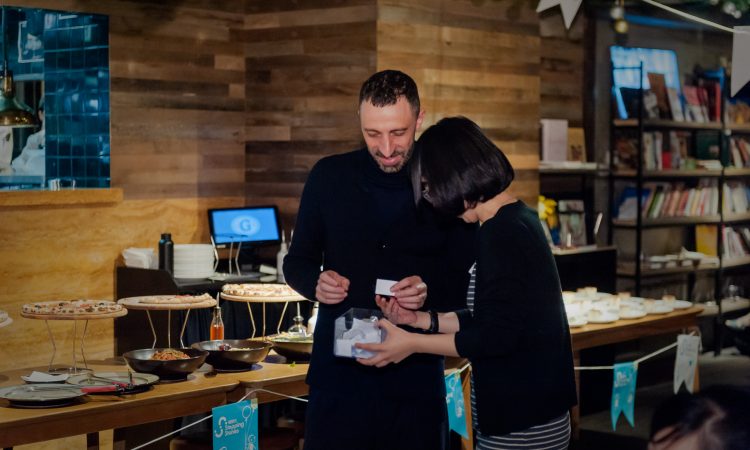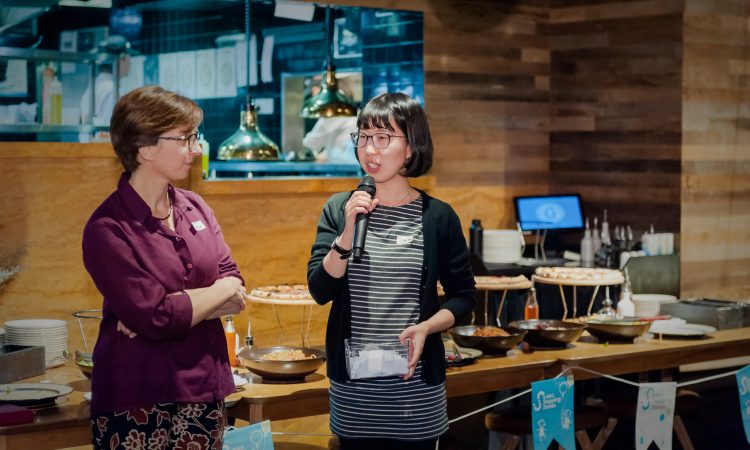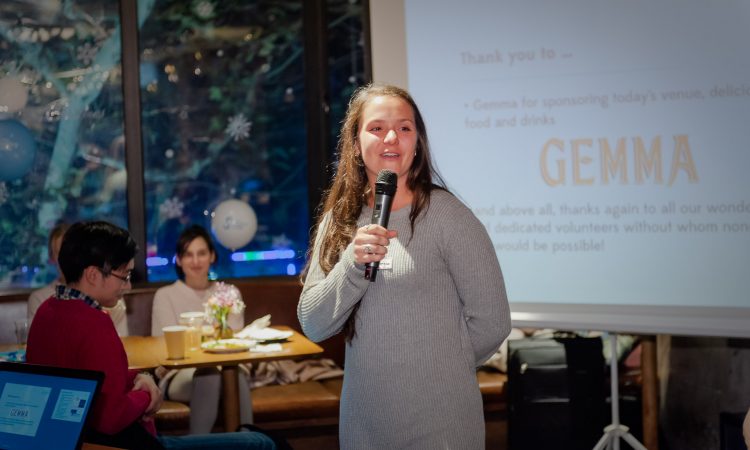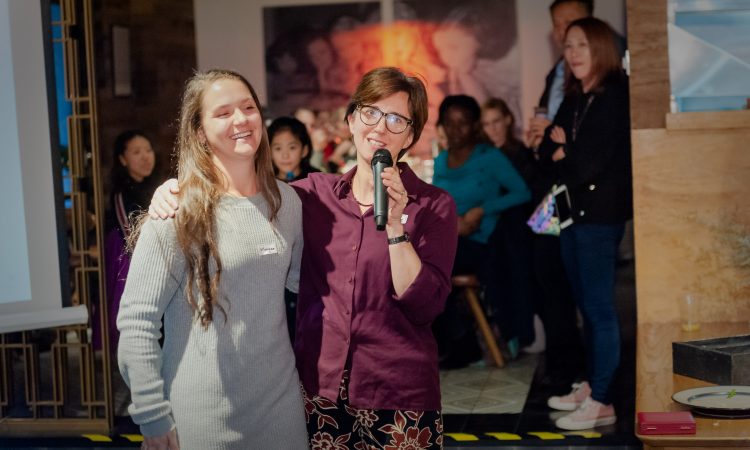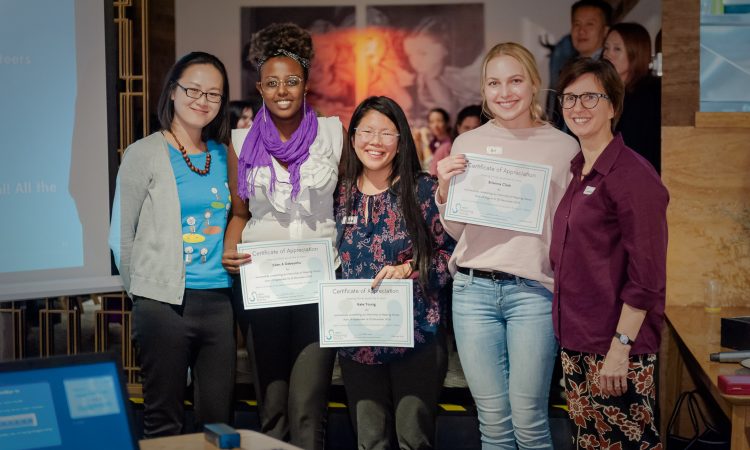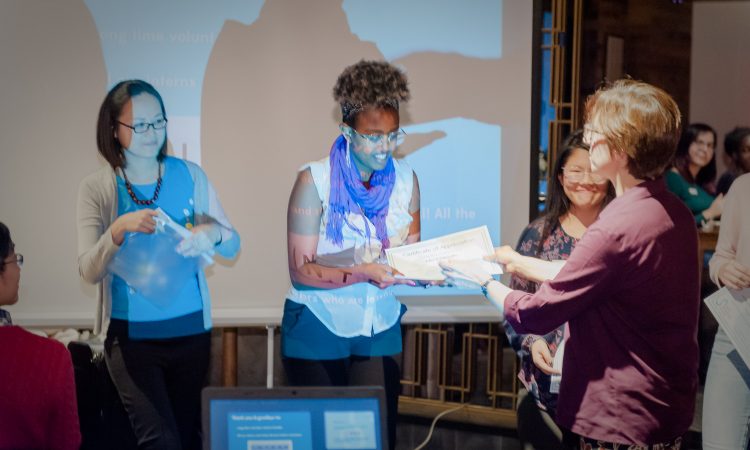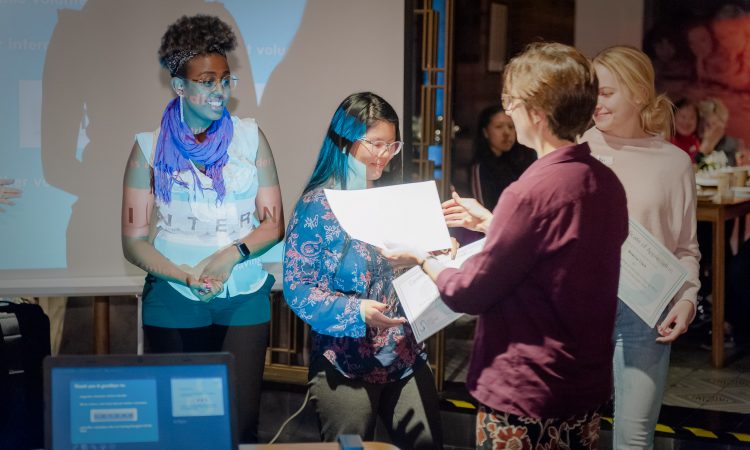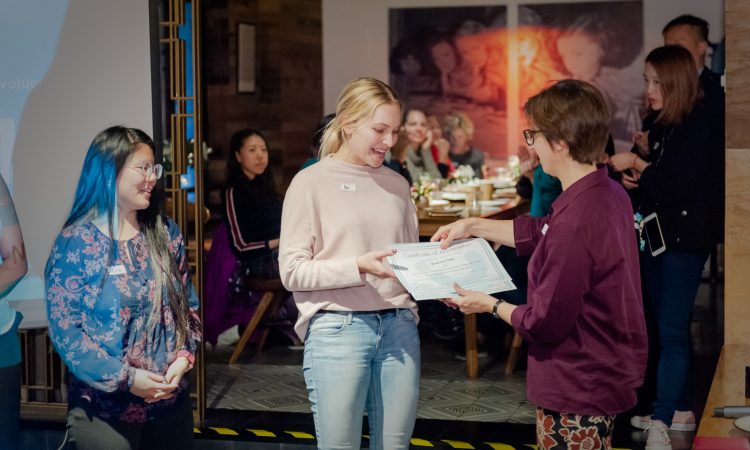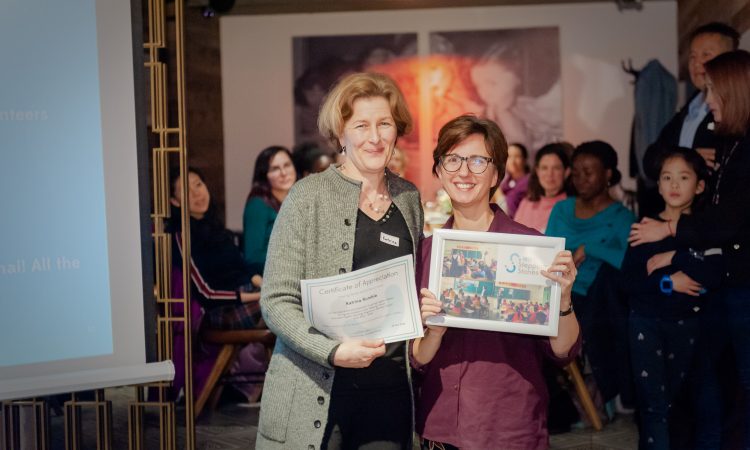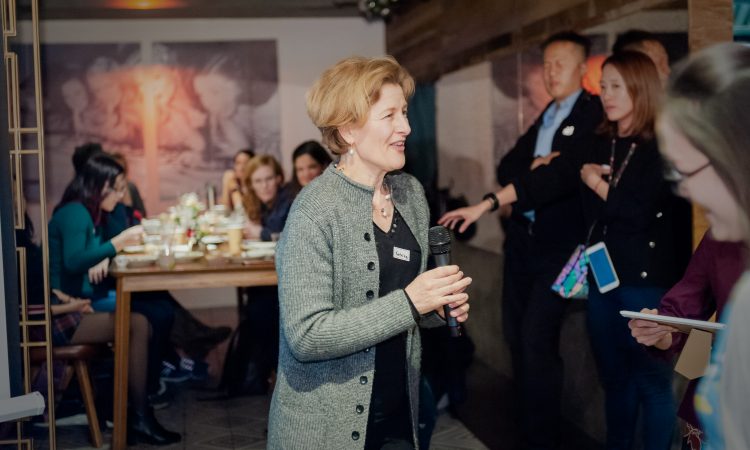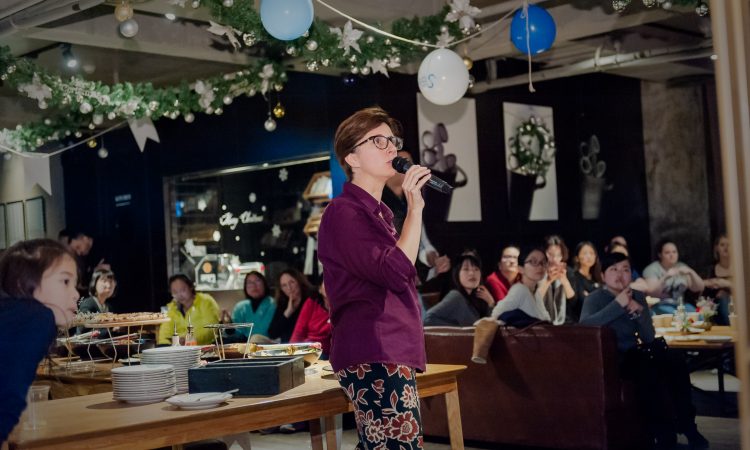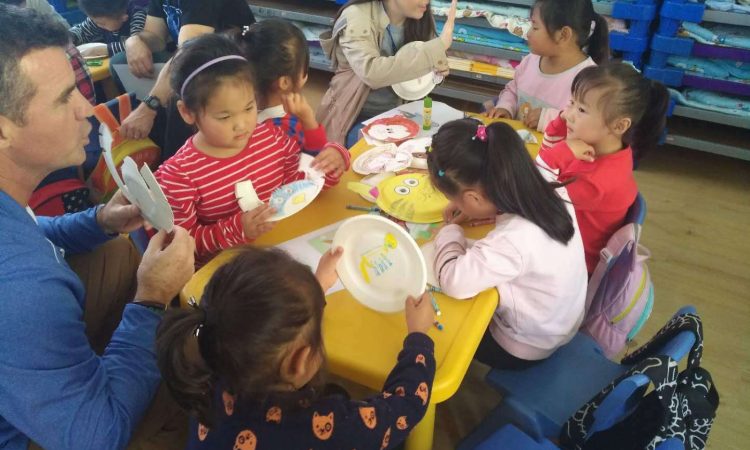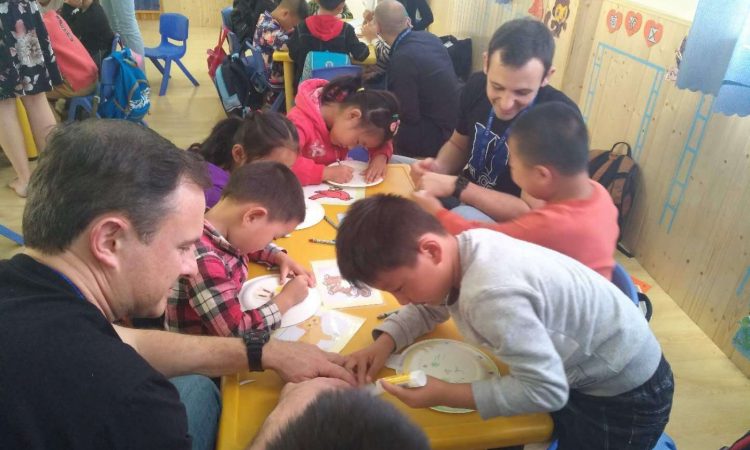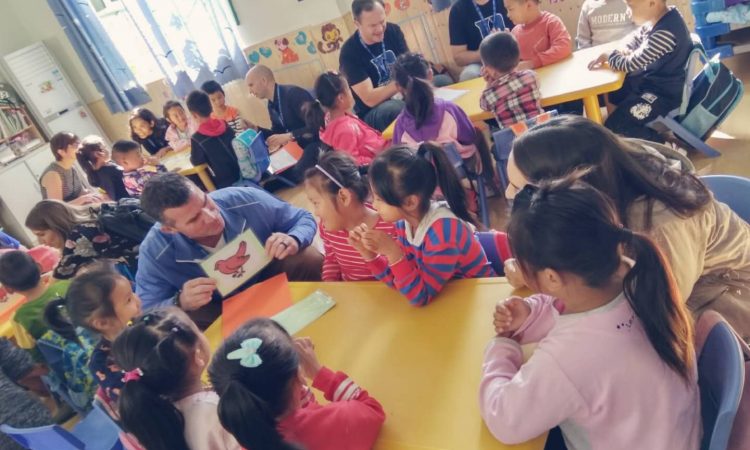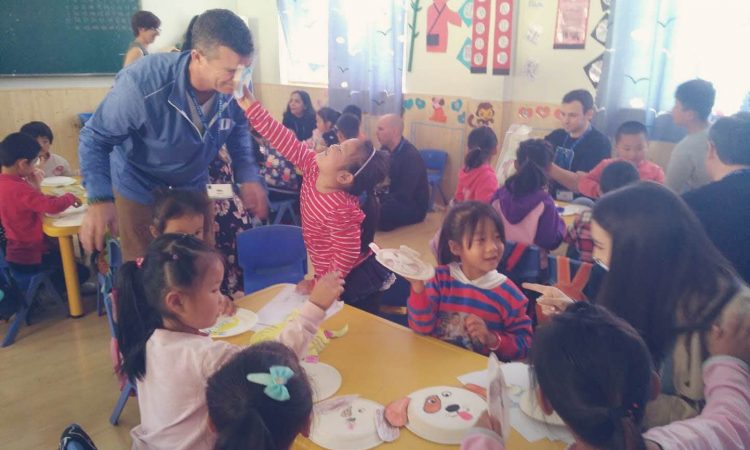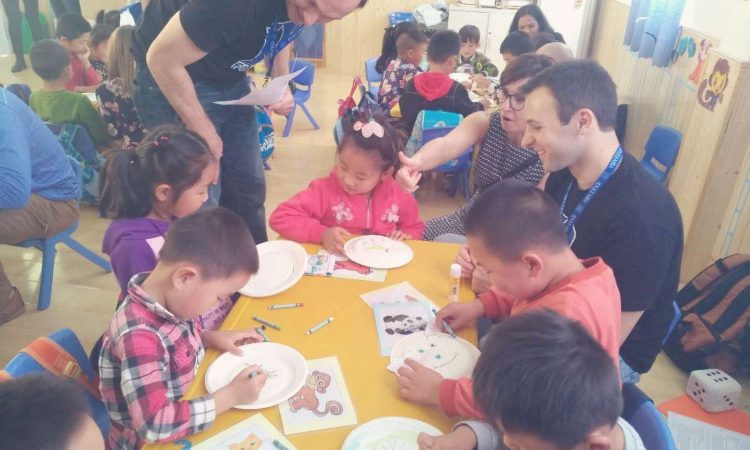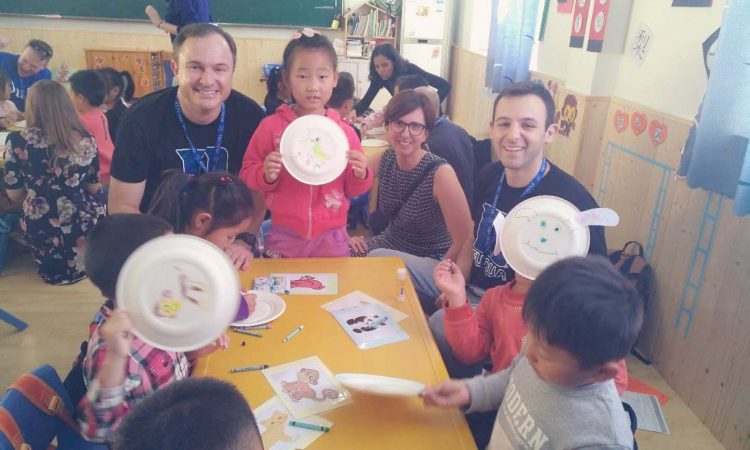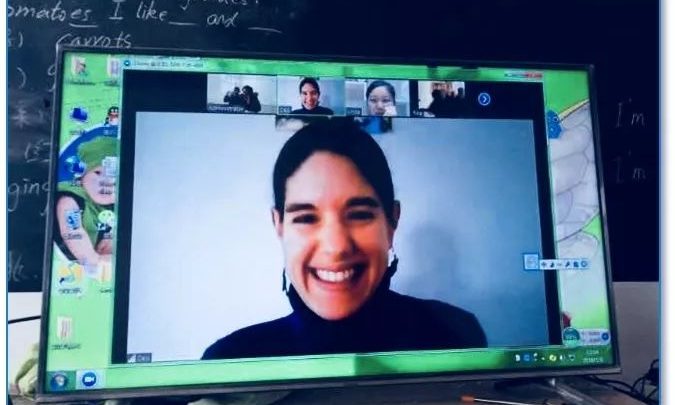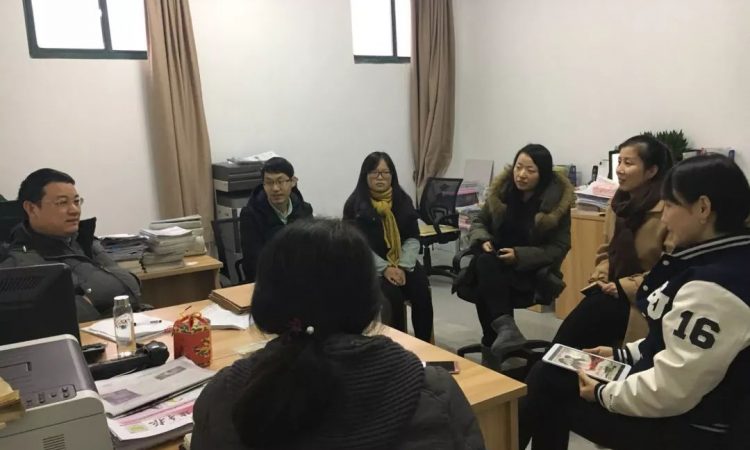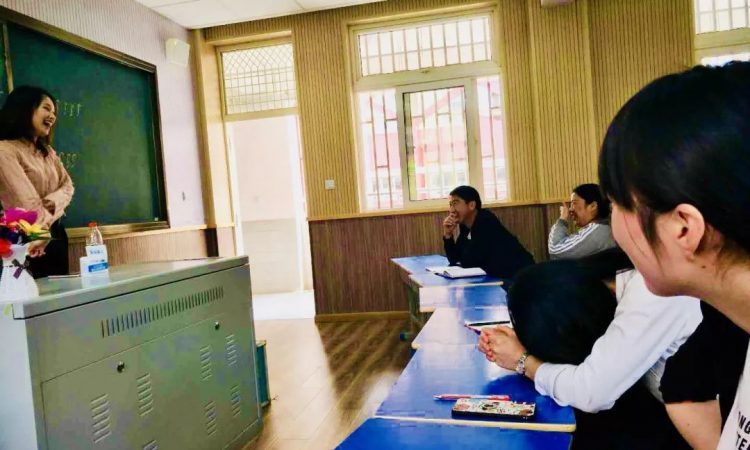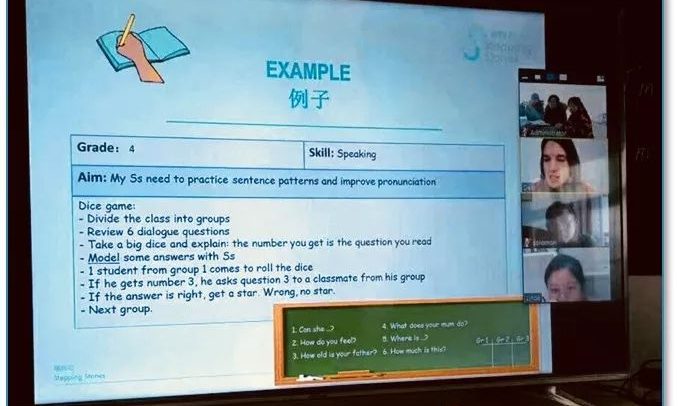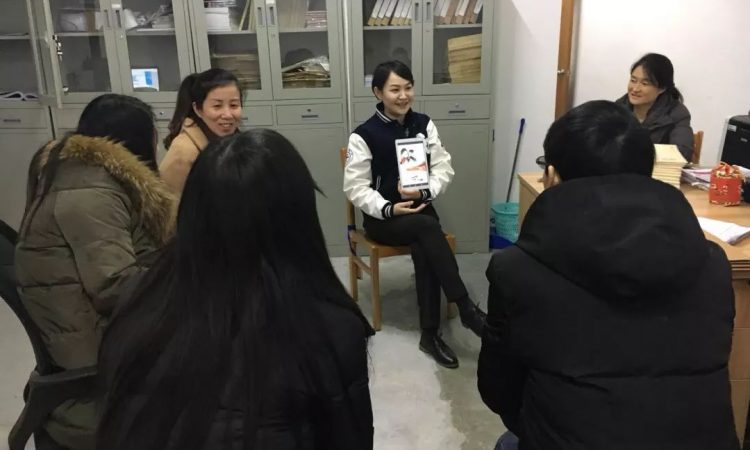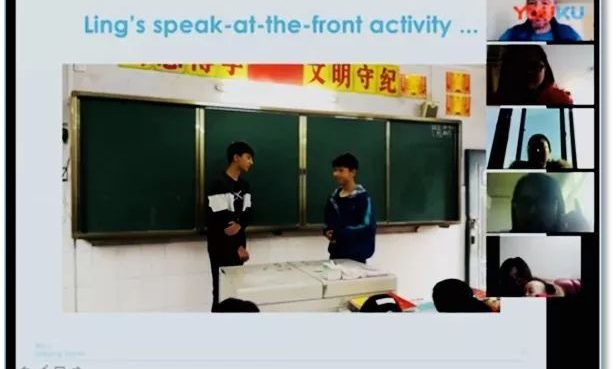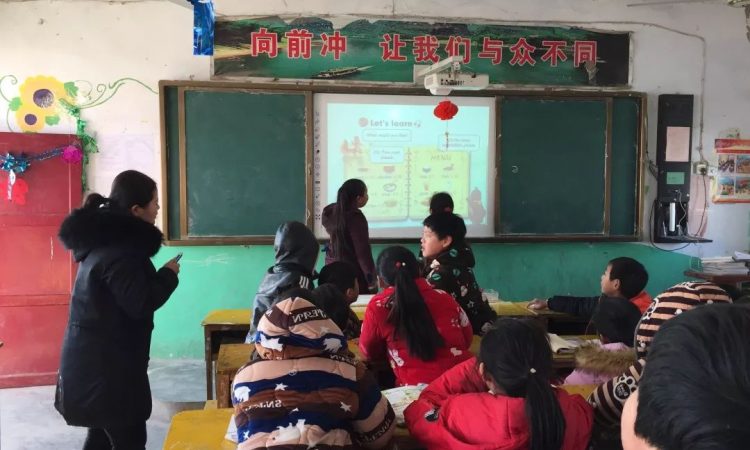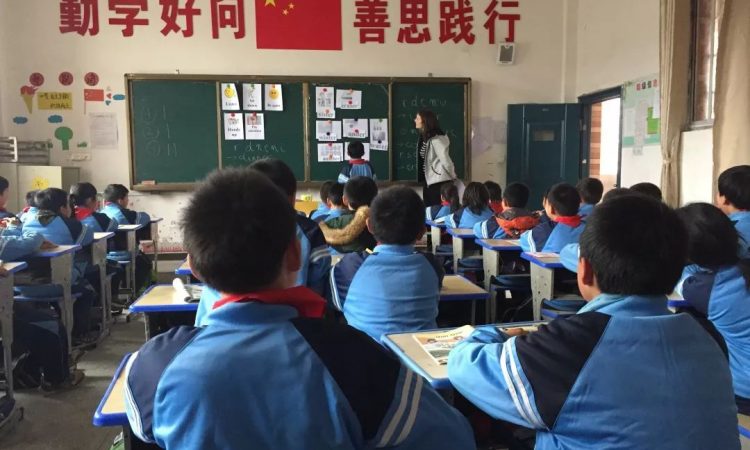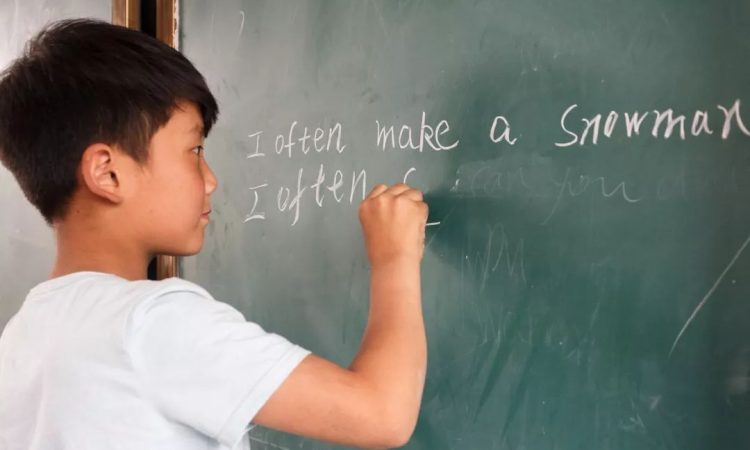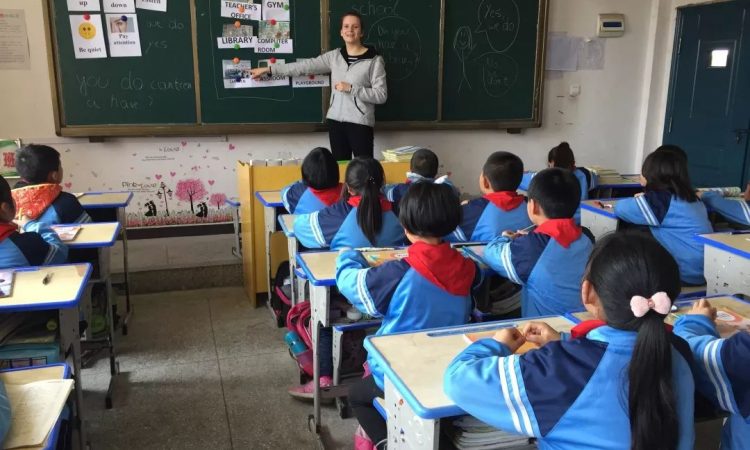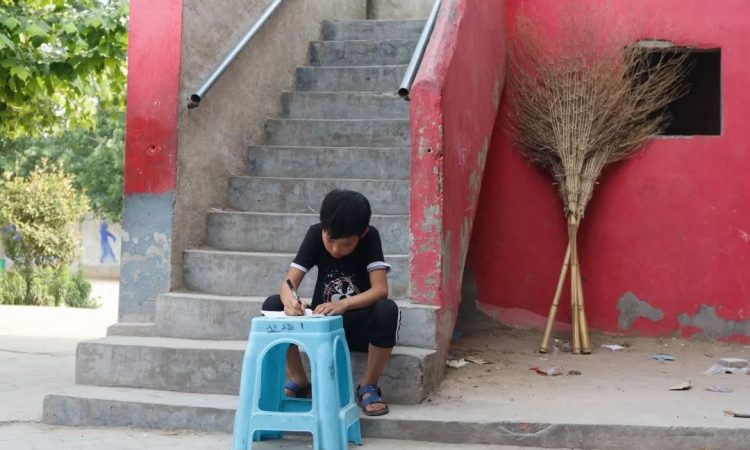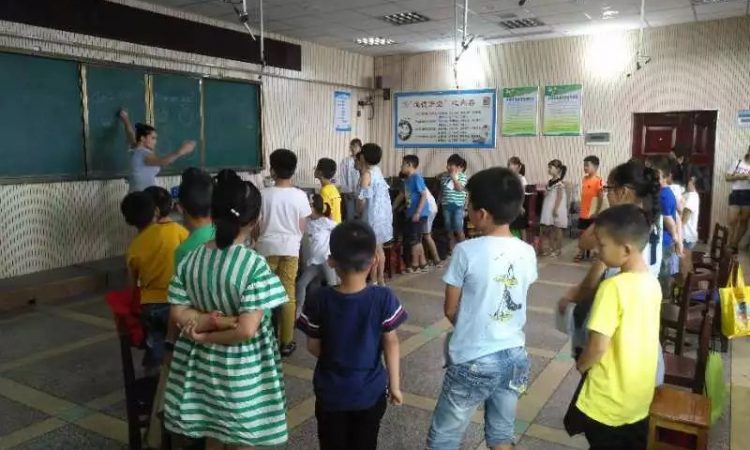
Category: Programme Updates
A lovely interview with our lovely volunteer Connie!
Stepping Stones volunteer Connie Yuan made history last month, becoming our longest-serving ever individual rural volunteer, having spent six full weeks living and teaching in the town of Taohuajiang, Hunan province. We asked Connie, who is from California, about her experience.
A: To be honest, I was not really sure what to expect. I think when people hear rural, the first thing that can pop into mind are dirt roads and little village huts. Where I went for my volunteering, Taohuajiang, was more like a small city than what we would traditionally think of as rural (which Morgan did tell me during our briefing!). So, in that sense, Taohuajiang was a pleasant surprise.
Volunteer Appreciation Party was great!
A big THANK YOU to all volunteers who attended the Stepping Stones Volunteer Appreciation Party on Wednesday, 5th Dec. We were there, of course, to celebrate this semester’s achievement: over 200 volunteers delivering more than 1,700 lessons to 3,600 students at 29 schools and community centers around Shanghai. None of this would have been possible without your hard work, dedication and commitment. So, THANK YOU again!

Congratulations to those who won the lucky draw prizes and a huge thank you to the lucky draw sponsors: Husk, Urban Thai, M on the Bund, Dragonfly, Epermarket, Fields as well as Simon Harrold for contributing two tickets to the Disney Resort, Shanghai. Volunteers had a great time with great food and drink generously sponsored by Gemma. We hope you had as much fun at the party as we did; thank you for attending!
“Stepping Up” – this is how we do it!
Teddy and Ben are our full-time computer teachers for the program Stepping Up. Stepping Up is our computer teaching program that teaches computer and life skills to middle school students in Jiaxing.
Why teach Computer skills?
We can hardly live without the internet these days. Computer skills are important for everyone. We do not believe that by simply bringing computers and internet into migrant schools we will magically help each child to be successful. But we do believe that with the right balance of fun and challenge, mentoring, encouragement and discipline – as well as a carefully planned curriculum and properly trained teachers, we can begin to help the children develop many of the digital literacy skills they are currently missing to be better prepared for the future.
On a Wednesday afternoon, I went to our site in Jiaxing to see what classes are like and to learn more about this program. Upon arrival, the students were hyped to see their beloved teachers Teddy and Ben arriving at the school. The two teachers were surrounded by students who were jumping around and asking all different questions. After a short break, Teddy started the class by revising one classic Chinese poem. Huh? You might ask. Teddy combines different elements such as critical thinking and Chinese literature into teaching digital literacy, to help students use technology as a tool of achieving their goals in the modern world.
Have you figured out what the learning objective was about? The goal of the day was to successfully type this particular Chinese poem into the computer. After learning the literature, students were guided to the computer room where they started a typing game. The atmosphere was dynamic with students fully focused and raising hands here and there for teachers’ instructions. Later, after receiving specific guidelines from Teddy, the students calmed down and concentrated on how to type the poetry.
Besides Ben and Teddy, there were also two volunteers helping. They are both students from Tongji University who study close by and are members of the volunteer association of their faculty. I was curious about the young volunteers and immediately asked, “Why did you guys come to help?” One of them looked at me, thought for a few seconds, became quite serious and said ” Serving others rather than serving yourself is a transcendent experience…”
It surprised me for a while, until I was brought back to the lively classroom.
Do you believe in helping others? We do. If you like this article, please have a look on our website to see what we do.
Active Monitoring
Not all learners develop at the same rate. Monitoring offers the opportunity to assess the progress of individuals, and can also provide an indication of what to re-teach or practice further.
Monitoring shouldn’t only happen when students are doing group activities or pair-work. Active monitoring should take place throughout the duration of the class to facilitate learning, especially for the students sitting at the back, who often need more individual attention and support.
After the teacher leading the activity (T1) teaches new language or sets up an activity, the assistant teachers (T2s) can move around the room, helping the students sitting far from the front to do extra practice, such as:
- getting students to say the target English words;
- checking individual students’ pronunciation;
- helping students practice the dialogues;
- getting students to give the answers to what T1 is asking.
This way, more students get the opportunity to practice speaking English. Don’t forget: during monitoring, each T2 should be in a different part of the classroom, to ensure maximum student coverage.
Stepping Stones is moving!
After nine happy years at Asionics Technology Centre in Changning District, Stepping Stones is moving to Sandbox near Ningguo Lu metro station in Yangpu District!
Stepping Stones would like to thank Sandbox for offering free space until summer next year, and would also like to thank Frank Yih of Asionics for providing a beautiful and comfortable home to Stepping Stones and several other non-profits for ten years! We will miss our friends at the Lotus NGO Centre, but look forward to making new friends at Sandbox in Yangpu. The address and the map can be found here.
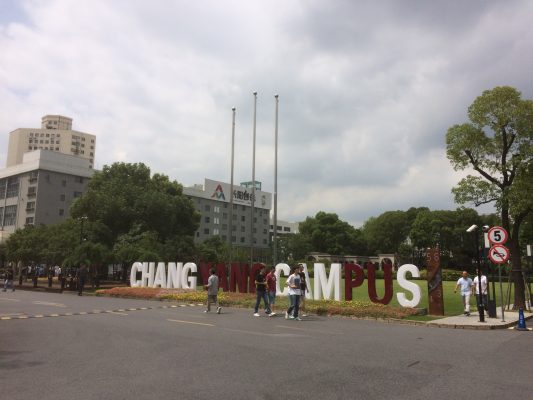


If you would be interested in providing Stepping Stones with a new home in 2019, please get in touch!
Corinne was awarded the British Empire Medal!
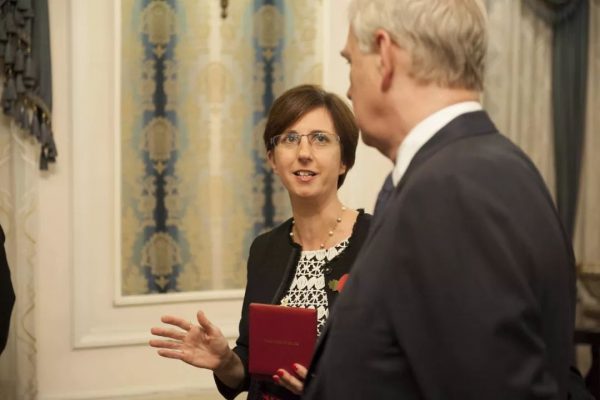
On Saturday 3rd November, at a small private ceremony in Shanghai’s famous Ruijin Hotel, His Royal Highness The Duke of York, KG presented the British Empire Medal to Stepping Stones’ Founder Corinne Hua.
The ceremony was attended by Her Majesty’s Ambassador to China Dame Barbara Woodward DCMG OBE, British Consul-General in Shanghai John Edwards, representatives from Stepping Stones’ major donors Shanghai Soong Ching Ling Foundation and Zhong Jing Group, and some representatives of Stepping Stones’ students, teachers, volunteers, staff and board members.
The Duke of York showed a great interest in the reasons why the children of rural Chinese migrant workers are excluded from mainstream education in China’s cities. He also discussed with Shanghai Soong Ching Ling Foundation’s Vice Secretary General Oliver Yang how to measure project impact.
Corinne was nominated in the Queens’ Birthday Honours List on 9 June 2018 for services to education and disadvantaged children in China.
Corinne said, “It was a big surprise and a huge honour to be nominated for this award. However, the award should really go to all of Stepping Stones’ volunteers, donors and staff, whose combined efforts over the last 12 years have made such a huge impact on the education of tens of thousands of children.”
John Edwards said, ““Stepping Stones is a fantastic organization that has helped open opportunities for many underprivileged children. And Corinne is an inspirational person who has done so much for UK-China relations. I can’t think of anyone who deserves this Honour more.”
The Duke of York took the time to greet and talk to all the guests individually:

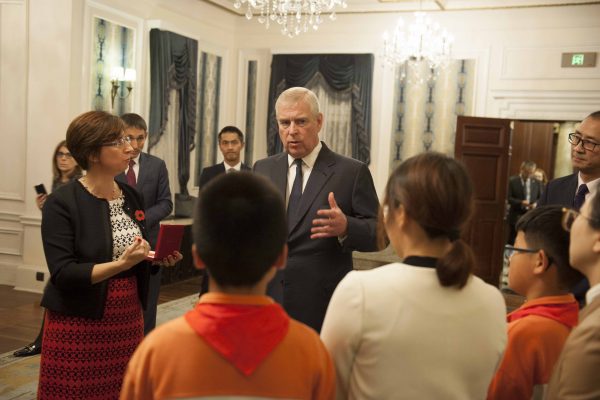
Two teachers and two students from Huabo Lixing Hang School in Minhang, where Stepping Stones volunteers have been teaching since 2010.
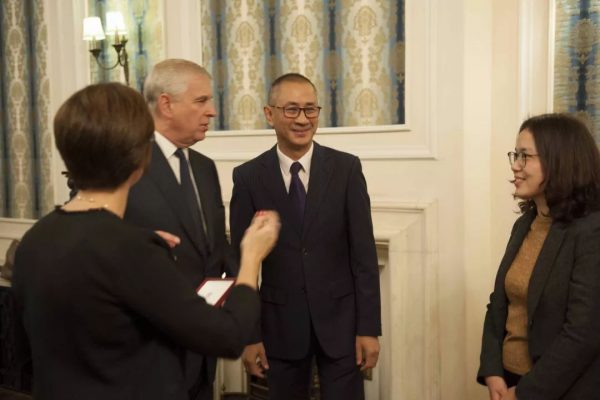
Corinne’s husband Hua Lei and Stepping Stones staff member Wang Cui

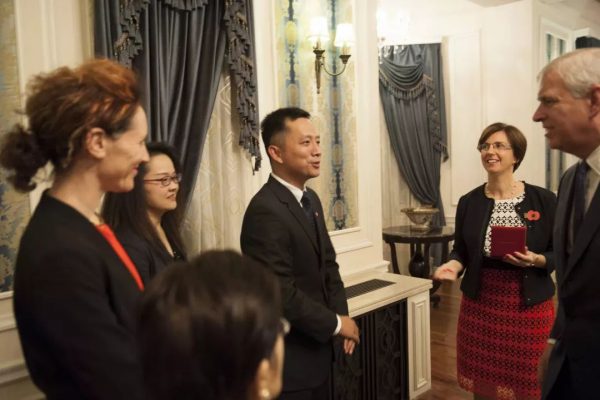
Long-term volunteers and board members Laura Mitchelson, Joy Chen and Leo Jia

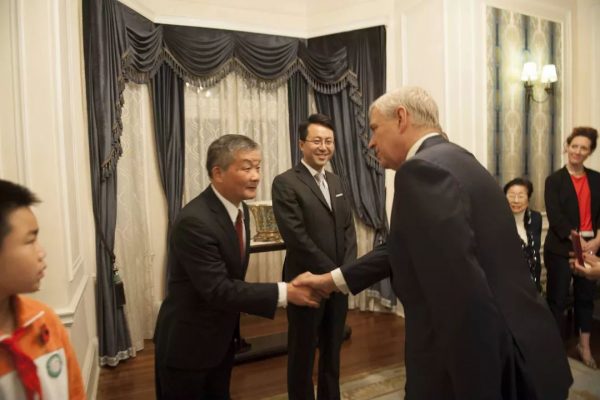
Mr Dai Minyou, Assistant to the CEO of major donor Zhong Jing Group
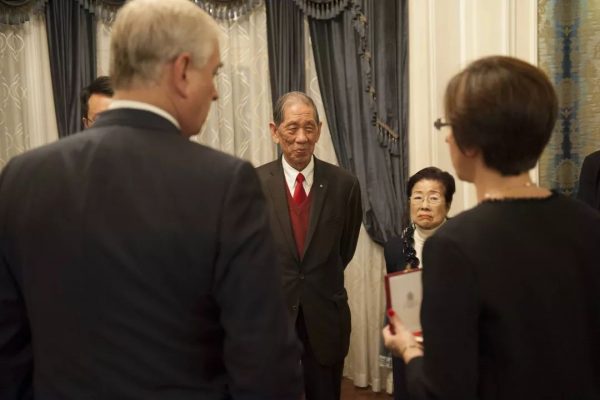

Mr Frank and Mrs Nancy Yih, who have donated office space to Stepping Stones since 2009.

The British Empire Medal is granted by Queen Elisabeth II in recognition of meritorious civil or military service.
Kindergarten kids had an English lesson from Duke MBA students!
On Friday 19 October, Duke MBA students paid a visit to a migrant kindergarten in Shanghai with us as part of their international program. It is on the other side of Shanghai with fewer skyscrapers and more rice fields. Director Corinne helped these volunteers to learn about the migrant situation as well as our organization by giving them detailed facts and stories. After the training of English teaching for the kindergarten kids was completed, the Duke MBA students made great use of the opportunity to interact with the kids and sparked inspiration in English learning. During the class, kindergarten kids learned a few everyday animal words through repetition, modelling and games. Provided that the children barely speak English, and the volunteers speak no Chinese, the volunteers tried their best to show and communicate. Laughter was heard everywhere and with a glance, you could spot funny expressions made by volunteers to help the kids learn.
The classroom teacher was very pleased with this activity and wrote us an informal thank you letter “I really thank the foreign teachers for their native oral English, fun body expressions and interesting classroom games. Through the interaction, the students experienced something different in learning and speaking English. For students’ responses, the teachers made great encouragement. From time to time, teachers were making funny movements while teaching, which made kids laugh. The learning activities embody an openness in education, and the children effortlessly learned those words during the English lesson. Very great experience.
Thanks to the foreign volunteers for providing our students knowledge in such fun way!”
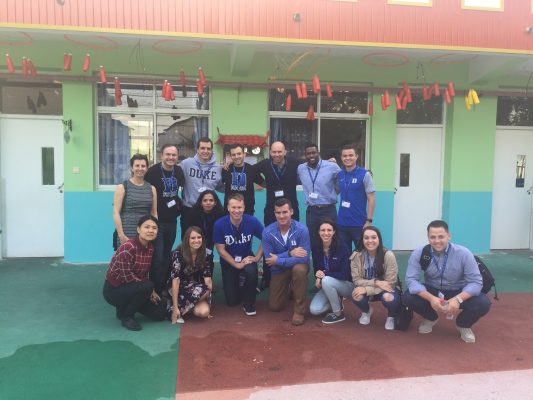
We are still looking for Online English Corner volunteers.
Do you want to help English teachers for migrant and left-behind children improve their oral English confidence, thus helping them teach their students better? If so, our Teachers’ English Corner may be for you.
- Based in Shanghai: If you are resident in Shanghai, and have free time on weekdays, you can visit a group of English teachers at their school and do a conversation class with them.
- Not based in Shanghai: If you are not resident in Shanghai, and/or have free time only in the evenings, you can do an online conversation class with rural teachers situated all over China.
To do:
A commitment of at least twice a month for a full semester is required. No experience necessary. Training will be provided. You are expected to volunteer in working hours during weekdays.
If you’re interested, please contact Desi Nieto at teacher.training@steppingstoneschina.net and don’t forget to do our online orientation and register online.
17 individual volunteers have taught 1559 rural students, yay!
Between January and August 2018, We have sent 17 volunteers to teach in rural schools, villages and community centers. The beneficiaries have all been rural, migrant and ‘left-behind’ children spread out in seven different provinces. Both the beneficiaries and the teachers benefited from Stepping Stones sending volunteers to teach English at their schools.
Below are some key facts:
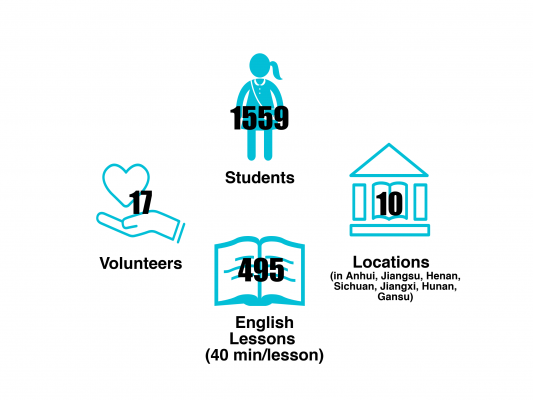
Through 495 lessons, the 17 volunteers taught grades spanning from Grade 3 to Grade 9 and even university students (EGRC project, click here for our previous post). These volunteers were from a diverse set of countries, including France, Australia, Germany, America and China. Volunteers not only taught English lessons, but held other activities such as crafts, games, and reading. Some of the volunteers were previous Stepping Stones interns that came specifically back to China to participate in this summer project. Below the map highlights the provinces involved where the lessons took place.
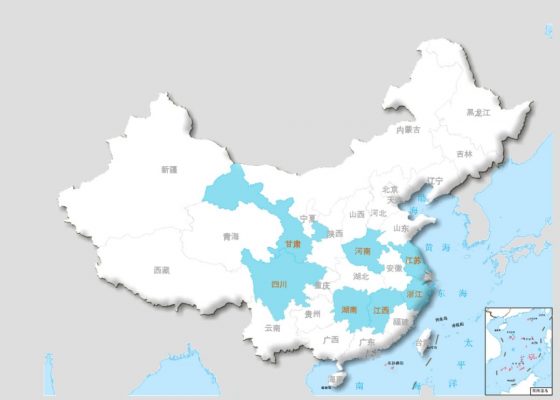
Are you curious about what the volunteers said about their experiences? Please have a look below:
“I really found value in sitting with teachers and talking about strategies to use in the classroom, both for English teaching and general classroom management. I felt like this aspect makes my time there feel more impactful, and teachers told me they will use some of what we talked about or what they saw modeled in my lessons to improve their teaching in the future. This is really rewarding!” – Carly
If you are interested in volunteering with us in rural areas, please click here for more information and here to register.



